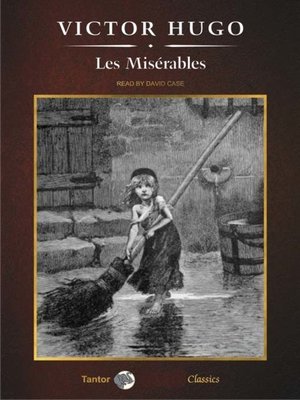
Sign up to save your library
With an OverDrive account, you can save your favorite libraries for at-a-glance information about availability. Find out more about OverDrive accounts.
Find this title in Libby, the library reading app by OverDrive.



Search for a digital library with this title
Title found at these libraries:
| Library Name | Distance |
|---|---|
| Loading... |
This is an Abridged Edition
Victor Hugo began writing Les Misérables twenty years before its eventual publication in 1862. Les Misérables is primarily a great humanitarian work that encourages compassion and hope in the face of adversity and injustice. It is also a historical novel of great scope, and provides a detailed vision of nineteenth-century French politics and society. Hugo hoped Les Misérables would encourage a more progressive and democratic future. Hugo wrote Les Misérables with a literary and political revolution in mind.
Les Misérables emphasizes the three major predicaments of the nineteenth century. Each of the three major characters in the novel symbolizes one of these predicaments: Jean Valjean represents the degradation of man in the proletariat, Fantine represents the subjection of women through hunger, and Cosette represents the atrophy of the child by darkness.
Victor Hugo began writing Les Misérables twenty years before its eventual publication in 1862. Les Misérables is primarily a great humanitarian work that encourages compassion and hope in the face of adversity and injustice. It is also a historical novel of great scope, and provides a detailed vision of nineteenth-century French politics and society. Hugo hoped Les Misérables would encourage a more progressive and democratic future. Hugo wrote Les Misérables with a literary and political revolution in mind.
Les Misérables emphasizes the three major predicaments of the nineteenth century. Each of the three major characters in the novel symbolizes one of these predicaments: Jean Valjean represents the degradation of man in the proletariat, Fantine represents the subjection of women through hunger, and Cosette represents the atrophy of the child by darkness.







